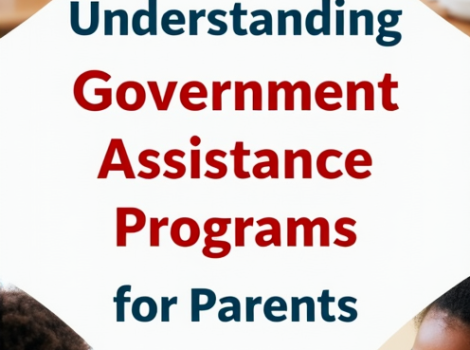Finding Reliable Information in Parenting Blogs
When you search for parenting advice online, it’s essential to sift through the wealth of information available in blogs. Not every author has the expertise or experience to provide sound guidance, and biases can easily skew perspectives. You’ll want to evaluate factors like the author’s background, the sources they cite, and whether their advice aligns with current research. But how can you effectively navigate these blogs to find trustworthy content that truly supports your parenting journey? The answer may lie in a few key strategies that can help you make informed choices.
Understanding Blog Credibility
When you engage with parenting blogs, it’s important to assess their credibility. You wouldn’t want to take advice from someone who thinks a “sleeping schedule” means napping on the couch, right?
First, check the blog’s sources. Are they quoting experts, or just sharing their cousin’s ideas? A reliable blog often backs up its claims with scientific research or expert opinions.
Next, look for the author’s background. If they’ve been a parent for a week, their tips might be a bit… let’s say, “fresh.” Blogs written by seasoned parents or professionals, like pediatricians, usually offer better insights.
Also, pay attention to the tone. If the blog feels overly dramatic or sensational, it might be trying to grab clicks rather than share solid advice. Balanced perspectives often indicate a more credible blog.
Finally, trust your gut. If something feels off or too good to be true, it probably is.
Evaluating credibility in parenting blogs can save you time and stress, helping you find the real gems among all that noise.
Evaluating Author Expertise
Evaluating an author’s expertise is essential for maneuvering through parenting blogs effectively. You wouldn’t take driving lessons from someone who doesn’t have a license, right? The same goes for parenting advice!
Start by checking the author’s background. Look for their qualifications, experiences, or even personal stories that relate to parenting. Are they a parent themselves? Do they’ve any degrees or certifications in child development?
Next, consider their writing style. Does it feel genuine, or does it seem like they’re just trying to sell you something? Authenticity matters! If they share personal experiences, it’s often a good sign they know what they’re talking about.
Also, pay attention to how they address different parenting topics. If they offer balanced views and acknowledge that every child is unique, they likely have a solid grasp of parenting.
Lastly, don’t forget to check the comments! Readers often share their thoughts and experiences, which can help you gauge the author’s credibility.
Finding reliable information can be tricky, but by evaluating the expertise of the author, you’re one step closer to making informed decisions for your family!
Checking Source References
A blog author’s credibility often hinges on the sources they reference. When you’re diving into parenting blogs, it’s crucial to pay attention to where the information comes from. If a blogger claims that a certain parenting technique is the best, check if they back it up with credible research, expert quotes, or statistics. After all, nobody wants to follow advice based on a whim or someone’s gut feeling!
Take a moment to look for links, footnotes, or citations in the blog. If they mention studies, see if those studies are from reliable places like universities or established organizations. It’s like checking the recipe for your favorite cookie—you want to make sure the ingredients are first-rate!
Sometimes, bloggers may reference their own experiences, which is valuable, but it’s also important to see if they combine personal anecdotes with solid research. This gives you a fuller picture.
Identifying Bias and Objectivity
Recognizing bias and objectivity in parenting blogs is just as important as checking source references. When you read a blog, think about the writer’s perspective. Are they sharing their personal experiences, or do they seem to have an agenda?
Sometimes, a blogger may favor a certain product or parenting style, and that can affect what they say. If they only highlight the positives of a product and ignore any negatives, that’s a red flag.
Look for balanced viewpoints. Does the blogger mention different sides of an issue? A good blog will consider various opinions and not just push one idea. It’s like when your friend can’t stop talking about their favorite video game but forgets to mention the bugs—it’s not the whole story!
Also, pay attention to the language used. If a blog sounds overly dramatic or uses strong emotions, it might be leaning toward bias. You want information that’s clear and fair, not just a one-sided story.
Examining Research and Studies
When it comes to parenting advice, examining research and studies can be a game changer. Imagine having solid facts to back up your decisions instead of just relying on what your neighbor said over the fence! Research helps you understand what really works when it comes to raising kids.
Look for studies published in trusted journals or conducted by experts in child development. These studies often provide insights into everything from sleep habits to nutrition. For instance, you might find research showing how reading to your child can boost their brain power. Now, that’s something you can get behind!
But don’t just take everything at face value. Check when the study was done. Older studies may not reflect current practices or knowledge.
Also, consider how many people were involved in the research. A small group mightn’t give you the full picture.
With a bit of digging, you can feel more confident in your choices. So the next time you read a parenting blog, remember to peek at the research they mention. It could be the secret ingredient to your parenting success!
Cross-Referencing Information
While diving into parenting blogs, cross-referencing information can be your best ally in separating fact from fiction.
Think of it like being a detective—you’re piecing together clues to find the truth about parenting advice. When you read something that sounds helpful, don’t just take it at face value. Check other sources, like reputable websites or books, to see if they share the same information.
For example, if a blog suggests a new sleep technique, look for studies or articles from experts that discuss it. This way, you won’t just rely on one opinion, which might be more about clicks than facts.
Also, don’t forget to evaluate who’s writing the blog. Are they a parent, a pediatrician, or someone who just really loves baby pictures? Their background can influence how trustworthy their advice is.
Recognizing Red Flags
As you sift through parenting blogs, keep an eye out for red flags that signal questionable advice. First off, if a blog promises miracle solutions or claims to have all the answers, it’s time to be skeptical. Parenting is messy and complicated, so no one-size-fits-all approach exists.
Another red flag is when the author lacks credentials or experience. If they’re giving medical advice without any background in healthcare, you might want to double-check that info.
Also, be wary of blogs that rely heavily on sensational stories or emotional appeals rather than facts. Sure, a good story can draw you in, but if there’s no solid evidence to back it up, it’s best to look elsewhere.
Watch out for overly aggressive marketing, too. If a post feels more like an advertisement than helpful content, it mightn’t be trustworthy.
Finally, blogs that discourage you from consulting professionals or suggest you ignore your instincts should raise alarms. Always prioritize your gut feelings and seek reliable sources.
The Role of Comments and Reviews
Comments and reviews serve as valuable tools for gauging the reliability of parenting blogs. When you read a blog post, don’t just skip to the end! Scroll down and check out what others are saying. If you see a lot of positive comments, it’s a good sign that the information is helpful and trustworthy.
On the other hand, if you find a bunch of negative feedback or complaints, it might be time to reconsider how reliable that blog really is.
Don’t just rely on the blog author’s words. You want to hear from other parents who’ve tried the advice. Their experiences can help you decide if the tips are worth following. Plus, you might find some hidden gems in the comments—like extra tips or warnings that the blog post didn’t mention.
Of course, keep in mind that not everyone will agree. Some folks might’ve different parenting styles or experiences. So, take it all with a pinch of salt!
Importance of Up-to-Date Content
Up-to-date content is essential in parenting blogs because parenting trends, research, and guidelines can change rapidly. You wouldn’t want to follow advice that’s outdated, right? New studies pop up all the time, and what worked a few years ago mightn’t be the best approach today.
Keeping current guarantees you’re getting the most accurate information, making your parenting journey smoother and more enjoyable.
Imagine you’re reading about a new sleep method for toddlers. If that method was the talk of the town last year but is now deemed ineffective, you could end up stressed and sleep-deprived for no reason! By focusing on blogs that update their content regularly, you can trust that the information you’re reading reflects the latest knowledge.
Plus, with social media buzzing about parenting hacks, what’s trendy today might be old news tomorrow. Staying informed helps you make decisions that are better for you and your family. You’ll not only feel more confident but also empowered!
Engaging With Professional Opinions
When steering through the vast world of parenting blogs, engaging with professional opinions can greatly enhance your understanding. These experts, like pediatricians and child psychologists, offer valuable insights that help you make informed decisions.
They’ve spent years studying child development, so their advice is often based on solid research rather than just personal experience.
When you read a blog post, look for any references to studies or quotes from professionals. This adds credibility and shows the author knows their stuff!
You might even find guest posts written by experts themselves. These can offer fresh perspectives and tips you mightn’t find elsewhere.
Don’t hesitate to ask questions too! Many blogs have comment sections or social media pages where you can engage directly.
It’s like having a mini parenting seminar at your fingertips.
Assessing Community Engagement
Evaluating community engagement in parenting blogs is essential for understanding how well these platforms connect with their audience. When you explore a blog, look for comments from readers. Are they sharing their own stories? Do they ask questions or offer advice? A blog that encourages lively discussions shows that it’s engaging with its community.
Next, check for social media presence. Is the blog active on platforms like Instagram, Facebook, or Twitter? A vibrant social media presence often means the blog is reaching a wider audience and fostering connections.
Plus, look for collaborative posts or guest contributors. When bloggers work together, it usually indicates a strong network, which can enhance the overall quality of information shared.
Lastly, consider the tone of the blog. Is it warm and inviting, or does it feel cold and distant? A friendly tone will make readers feel more comfortable sharing their thoughts.
Utilizing Fact-Checking Resources
Fact-checking resources are essential tools for anyone traversing the vast landscape of parenting blogs. With so much information out there, it’s easy to get lost or misled. You don’t want to follow advice that could lead to a parenting faux pas, right? That’s where fact-checking comes in handy!
Websites like Snopes, FactCheck.org, and even specialized parenting sites can help you verify claims and advice. When you read a blog post that sounds a bit too good to be true, don’t just scroll past it. Take a moment to do a quick search on those fact-checking sites. You might find that the advice is spot on, or you might discover it’s based on outdated information.
Using these resources not only keeps you informed, but it also helps you become a savvy reader. Plus, you can impress your friends with your fact-checking skills!




